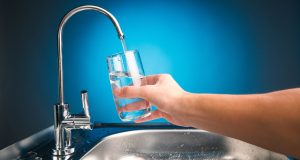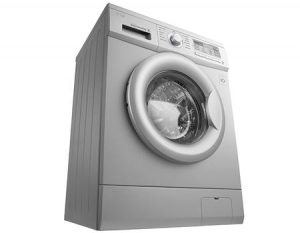Water saving tips for the summer
Good energy habits are not only good for your wallet but also great for the environment. Sumo has put together some tips on how we think you can save water this summer.

Did you know:
In 2018, Australia’s overall rainfall in August was the lowest it’s been since 2013, and in September it was the driest on record. For many sites across both Victoria and New South Wales, September had the least rainfall that has ever been recorded.
For much of Australia, urban water supply comes from reservoirs and other surface water sources that are filled by rainfall. In drier parts of the country, groundwater is the main source for fresh, drinkable water, which ultimately comes from rainfall. In short, we greatly depend on the amount of rain we get to have safe, clean, usable drinking water.
During times of low rainfall and drought, it becomes increasingly important for individual households to reduce their water usage. As rainfall is ultimately the source of our clean drinking water and the rest of the water we use in our homes, it’s important that we have tools to adjust our usage when the supply is low.
Household Water Usage:
New South Wales consumes 30% of the national water usage total, the highest household water consumption in the country. In 2016, the NSW household water consumption was 562 gigalitres. One gigalitre equals one billion litres.
In Victoria, household consumes 384 gigalitres making up roughly 20% of the countries total household usage. As the population grows, Victorian consumption rates have been slightly increasing each year.
As the climate continues to change, our current water practices become increasingly important to ensure sufficient water is available for future generations. You don’t have to be an expert or have any fancy appliances to start saving water today. In fact, you can start this summer with a few simple lifestyle changes we’ve listed below.
Easy Water Saving Tips you can Start doing Today:
The great part about saving water is that while you contribute to sustainability efforts that improve the state of our environment and resources for future generations, you’ll also save money on your utilities. Try some of these out today, they are surprisingly easy!
Take shorter showers: This one is obvious but it’s also one of the most effective tricks. Even cutting showers shorter by one or two minutes adds up a lot over a year. If you like to take your time lathering up, try switching off the water while you do it instead of stepping out of the stream.
Turn off the tap while brushing your teeth: Some of us have a habit of leaving the tap running whilst we brush out teeth. Train yourself to switch off the tap and only use it as needed.
Flush less: Where possible try opting for a half-flush toilet if you have a dual-flush system. You’ll only use half the amount of water and if you’re really comfortable with it, flush only when it’s really needed.
Fill your dishwasher completely: Sometimes it’s tempting to run a half-empty machine, but the same amount of water ends up being used. Either choose a top-shelf option, or wait until it’s full so you don’t have to run it again.
Fill your washing machine completely: This is the same as the step above. If your washer has an option for a small or quick load, you can also opt for that. Or opt for an efficient machine that only uses enough water based on the weight of your clothes. When purchasing a new washing machine look out for the energy and water star ratings that help pay less on your bills and save you more.
Water your garden in the evening: Watering during the heat of the day might seem sensible as plants look dry and thirsty. However, if you water at night, the water can seep deeper into the soil before it is dried up and you’ll find that more water makes it to the depth of the roots and you won’t need to water as often. In addition – add mulch as this helps to keep the moisture in the soil.
Fill up your sink when washing dishes: Rather than letting the water run continuously while scrubbing dishes, fill one side with soapy water and get most of the scrubbing done there. Afterwards, just give your dishes a quick, short rinse in running water. If possible, load your dishes into a (full) dishwasher instead as these tend to use less than hand-washing.
Fix your leaks: If your water bills seem suspiciously high, you may have leaky pipes somewhere. Even a dripping tap can waste 20,000 litres of water a year.
Easy water-saving household replacements:
While the steps above make a big difference in overall water usage, you can go the extra step by switching out a few of your regularly used appliances around the house.
Opt for a front-loading laundry: In general, front-loaders have more efficient water use than top-loaders. For any appliance, you can check its energy and water rating before you buy.
Get efficient shower heads: These go a long way to reduce water wastage while still supplying an even flow with plenty of pressure.
Install a water tank: If you’re a homeowner or staying somewhere long term, you can collect and use rainwater to redistribute it for things such as watering your garden.
Regularly check your pool: Only top up your pool water levels as required and regularly check for any leaks and keep on top of pool maintenance.
Which steps will you start to save water and save money on your Sumo energy bills?